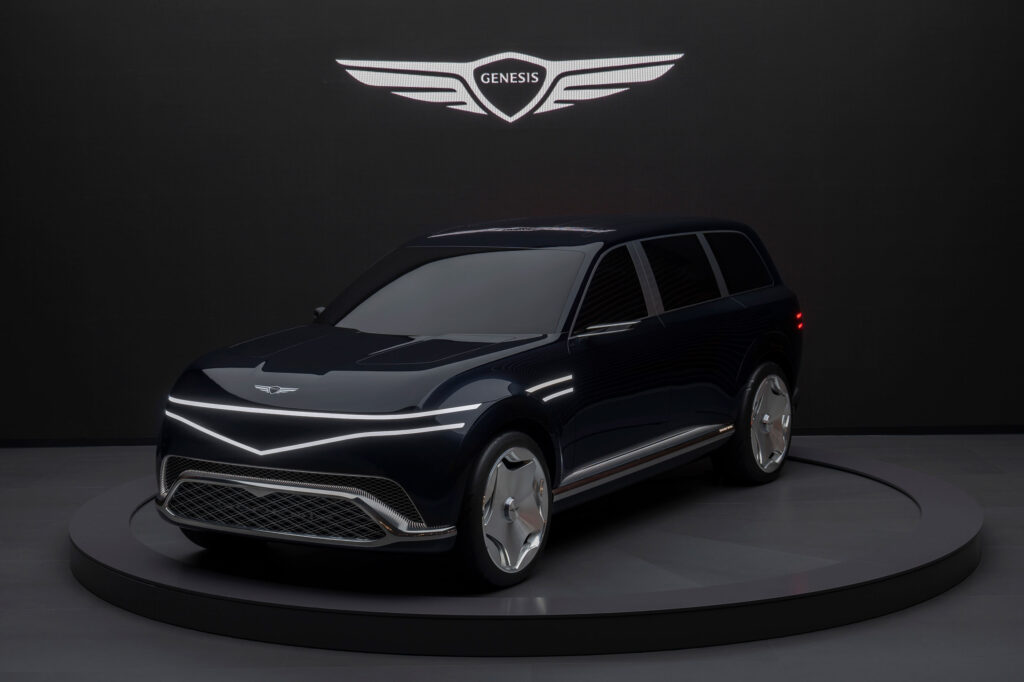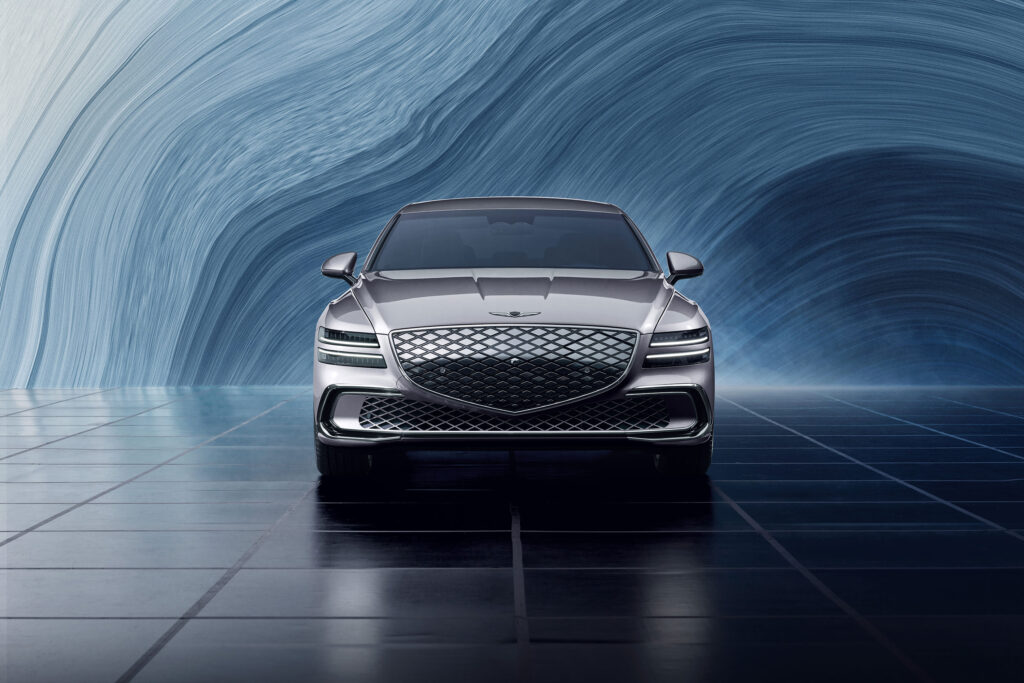Whether it’s the latest and greatest EV or a traditional sedan, a combustion-powered utility vehicle or a stunning new concept, tasteful styling is a cornerstone of Genesis, the world’s only Korean luxury automotive brand.
“We are always challenging ourselves to be more timeless,” said SangYup Lee, the head of Genesis global design, while speaking with media at the Busan International Motor Show. For him and his team, this is a task that’s not as easy as it may sound.
“Elegant design is very difficult for designers because it always relies on reductivity,” explained Lee, “because normally … the designer always wants to add the element instead of taking it out, so it’s always challenging. But this, for us, is the only way [for] the car to be timeless.”

The company’s current lineup manages to pull this off quite well. Each vehicle in the range is beautiful and clean yet still plenty unique. Ensuring the stately G90 sedan looks like it’s part of the same family as, say, the spunky GV60 utility vehicle, all Genesis models incorporate the brand’s signature two-line motif, a special styling element that gives these cars and crossovers an unmistakable look, whether viewed head on, in profile or from the rear. Lee said this theme makes their products more distinctive and sophisticated, but not in a loud or showy way.
“That’s basically the character of yin and yang, also the character of duality,” said Lee. “So, [the] two-line motif is actually something that we carry on into the future, but continuously challenging,” he added, making it more precise and thinner going forward. An example of how a signature design element can adapt over the years is the shape of the Porsche 911’s headlamps. They’ve changed subtly over the car’s myriad generations, but they’re still unmistakably familiar, “every generation that steps up for Genesis is going to be more like that,” he noted.
This luxury brand’s design ethos also draws heavily from its East Asian heritage. In traditional Korean art and architecture, there’s a deep appreciation for the beauty of white space, areas left empty or blank. After all, not every surface needs filigree, bric-a-brac or adornment. For instance, a carpenter may prefer to let the natural beauty of a wood’s grain shine, rather than covering a piece of furniture with ornate carvings. The roofs of traditional Korean homes (called hanok) often curve slightly, something that evokes their natural surroundings. Inside these dwellings as well, beams and roof joists are often left uneven — curving, twisted or rounded — however the tree grew when it was alive. This natural look is thought to be more beautiful than if everything were perfectly uniform and squared-off, a hallmark of Japanese design.

Putting these ideas into practice, the Neolun concept, which was unveiled ahead of the New York Auto Show earlier this year, presages where Genesis is probably going in the not-too-distant future, particularly when it comes to interiors. Lee described this all-electric concept SUV’s cabin as the “ultimate reductive design,” one that truly highlights the beauty of white space. “All the technology’s there, but it only comes when you need it,” he added “and the touches and the elements, obsession to detail is there, and the experience of what you can do is almost an extension of your house.”
The Neolun does have a few a few features that probably won’t make it to production, like swiveling front seats, rear-hinged coach doors that close without a B-pillar and radiant in-floor heating, or ondol, another element inspired by traditional Korean homes, but this battery-powered SUV’s exterior and interior design looks practically production ready. Underscoring this, “We don’t do the concept car for the sake of concept car,” said Lee. “The Neolun is actually very, very serious intention for production.”
Even though Genesis is still in its infancy compared to rivals like Cadillac, Mercedes-Benz or even Lexus, next year the company will celebrate its 10th anniversary as an independent automaker, a huge milestone. “Being a young luxury brand, we don’t have so much legacy on our shoulders,” said Lee. Older companies have “brand bibles” they’re practically required follow, traditions to uphold. “At Genesis,” he noted “we have the same bible, but with blank pages.” For him, there’s freedom to try new things and be adventurous.

The automaker’s current crop of vehicles has been met with critical acclaim. The electric models tested here at EV Pulse have consistently wowed us. In fact, the Electrified GV70 SUV won our first EV of the year award. Genesis has come an enormous distance in an incredibly brief period of time, but despite such praise, Lee doesn’t think they’ve succeeded yet. “We’ve still got a long way to go,” he said, adding that they need to constantly challenge the market and bring more value to motorists “because at the end of it, if (the) customer does not believe in our brand, it doesn’t mean anything.”
Fortunately, there’s plenty to love today, and likely even more to swoon over in the coming years. “The past is the past,” said Lee. “You know, you can’t live with the past as a designer, because a designer needs to have a challenging spirit, you always need to push forward,” and that’s exactly what Genesis is doing, though without losing sight of its unique heritage.

